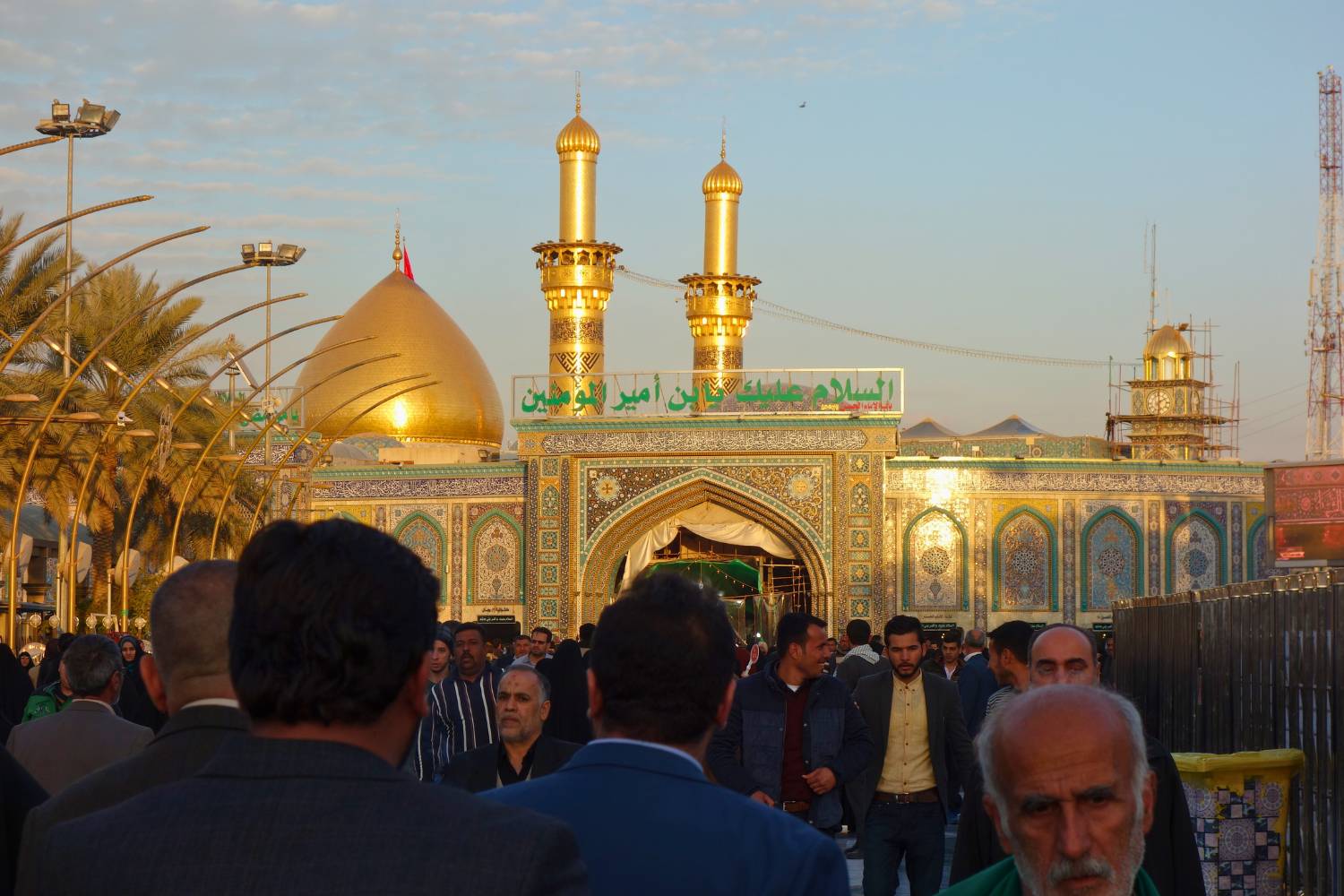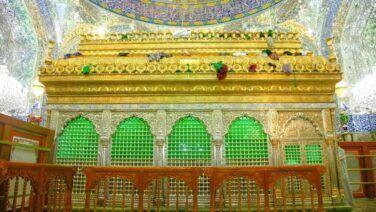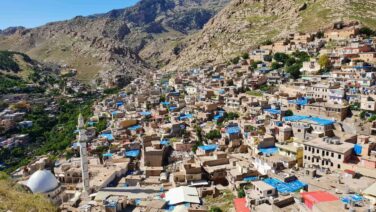Karbala, one of the most sacred cities for Shia Muslims, is located in central Iraq. It is renowned for its profound religious significance and is the site of the martyrdom of Imam Hussain, the grandson of the Prophet Muhammad. Each year, millions of pilgrims visit Karbala to pay their respects and participate in the religious ceremonies. Beyond its spiritual importance, Karbala also offers rich cultural experiences and historical landmarks that reflect the city’s deep heritage.
Early Islamic Period:
- Foundation: Karbala’s history is deeply intertwined with the early Islamic period. The city gained prominence following the Battle of Karbala in 680 AD, where Imam Hussain and his followers were martyred. This event is commemorated annually during the religious observance of Ashura.
- Religious Significance: The martyrdom of Imam Hussain transformed Karbala into a symbol of sacrifice and devotion, making it a pivotal site for Shia Islam.
Medieval Karbala:
- Pilgrimage Site: Over the centuries, Karbala developed into a major pilgrimage site. The construction of the Imam Hussain Shrine and other religious buildings attracted pilgrims from across the Muslim world.
- Ottoman Era: During the Ottoman rule, Karbala continued to thrive as a spiritual center. The city’s infrastructure and religious institutions were further developed during this period.
Modern Karbala:
- 20th and 21st Centuries: In modern times, Karbala has faced challenges but remains a central place of worship and pilgrimage. The city continues to expand and improve its facilities to accommodate the growing number of visitors each year.
Must-Visit Attractions
Imam Hussain Shrine:
- Spiritual Epicenter: The Imam Hussain Shrine is the most significant landmark in Karbala. This majestic shrine, with its golden dome and intricate architecture, attracts millions of pilgrims annually. It stands as a symbol of faith, sacrifice, and resilience.
Al-Abbas Shrine:
- Religious Significance: Located near the Imam Hussain Shrine, the Al-Abbas Shrine is dedicated to Abbas ibn Ali, the brother of Imam Hussain. This beautifully designed shrine is another important site for pilgrims and visitors.
Al-Hindiya Dam:
- Historical Engineering: Built during the Ottoman era, the Al-Hindiya Dam is a significant engineering achievement. It regulates the flow of the Euphrates River and is an interesting site for those interested in historical infrastructure.
Old City of Karbala:
- Historical District: The Old City of Karbala offers a glimpse into the past with its traditional markets, historic buildings, and narrow streets. Walking through this area provides a deep connection to the city’s heritage.
Cultural Experiences
Iraqi Cuisine:
- Local Flavors: Karbala’s culinary scene is rich with traditional Iraqi dishes and regional specialties. Be sure to try local favorites like masgouf (grilled fish), kebabs, and qoozi (roast lamb). The city’s numerous restaurants and street food vendors offer a delightful gastronomic experience.
Markets and Souks:
- Shopping Delight: Karbala’s markets are bustling with activity and provide a vibrant shopping experience. You can find a variety of goods, from religious artifacts and books to spices and textiles. The city’s souks are a great place to immerse yourself in local culture.
Cultural Festivals:
- Religious Celebrations: Karbala hosts several important religious festivals throughout the year. The most significant is Ashura, which commemorates the martyrdom of Imam Hussain. Millions of pilgrims gather in the city to participate in the ceremonies, making it a deeply moving experience.
Natural Attractions
Euphrates River:
- Scenic Beauty: The Euphrates River, flowing near Karbala, offers beautiful landscapes and a tranquil environment. It’s a perfect spot for a leisurely boat ride or a peaceful riverside walk.
Lake Razaza:
- Natural Retreat: Also known as Lake Milh, this salt lake is located west of Karbala. It is a serene natural attraction that provides a peaceful retreat and opportunities for bird watching and relaxation.
Practical Information
Best Time to Visit:
- Weather Considerations: The best time to visit Karbala is during the cooler months from October to April. Summers can be extremely hot, making outdoor activities less enjoyable.
Getting There:
- Accessibility: Karbala is well-connected by road and rail from other parts of Iraq. The nearest major airport is Najaf International Airport, which is approximately 75 kilometers away and offers connections to various international destinations.
Accommodation:
- Where to Stay: Karbala offers a range of accommodation options, from luxury hotels to budget-friendly guesthouses. Popular choices include the Karbala Rayhaan by Rotana, Karbala Towers, and various other hotels that provide comfort and convenience for pilgrims and tourists.
Karbala, a city of profound significance in Iraq, is renowned for its historical, religious, and cultural attractions. It is most famous for its association with the martyrdom of Imam Hussein, a central figure in Islamic history. Here’s an introduction to some of the key attractions in Karbala:
Key Attractions in Najaf:
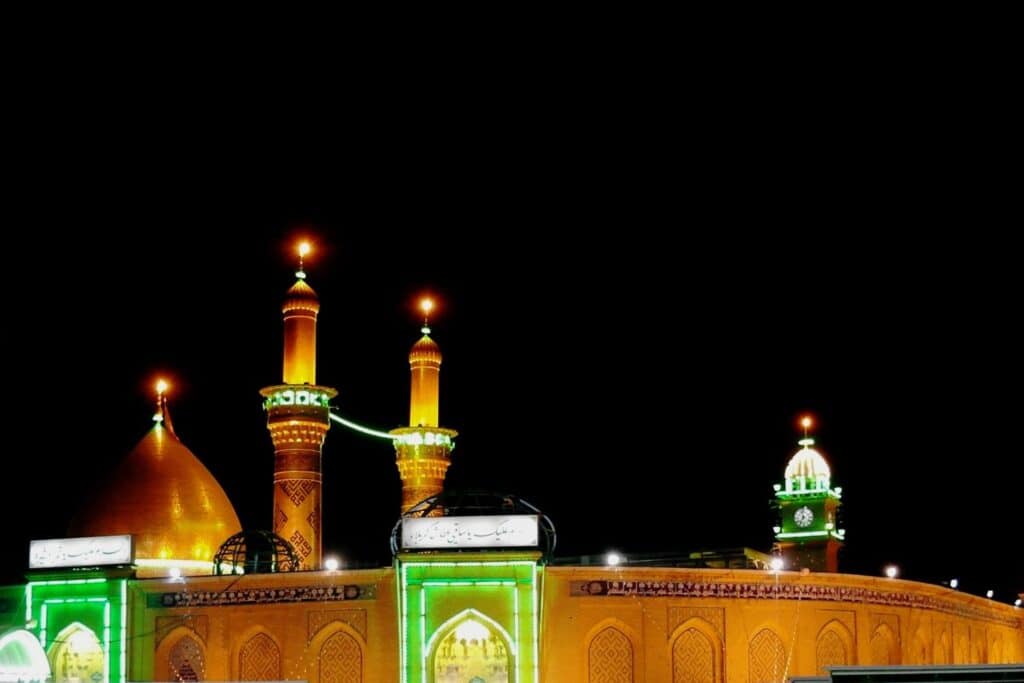
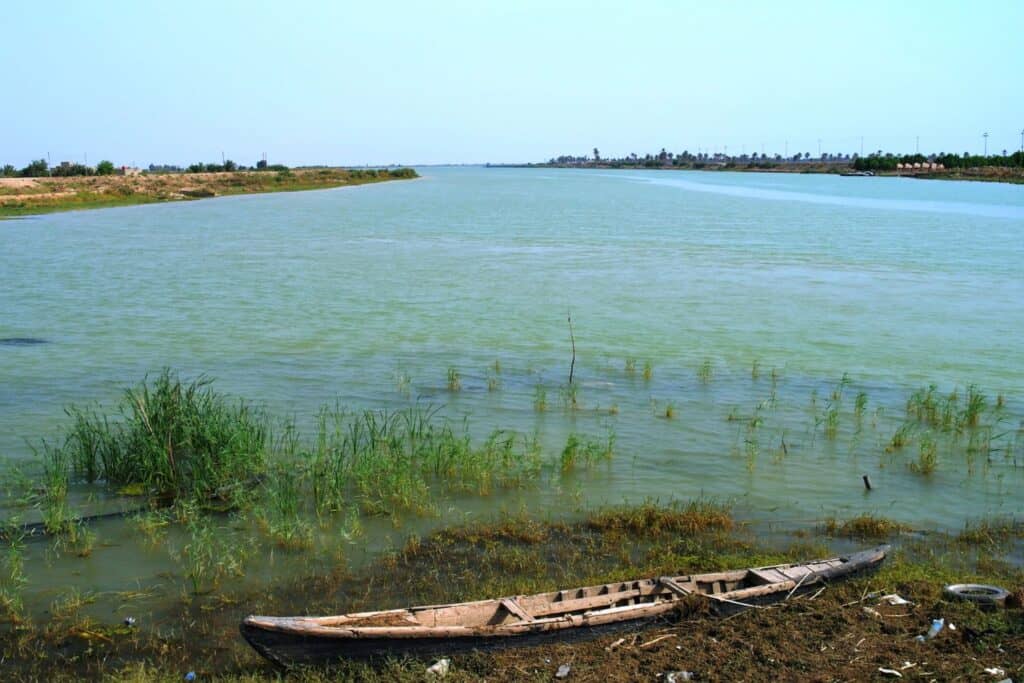
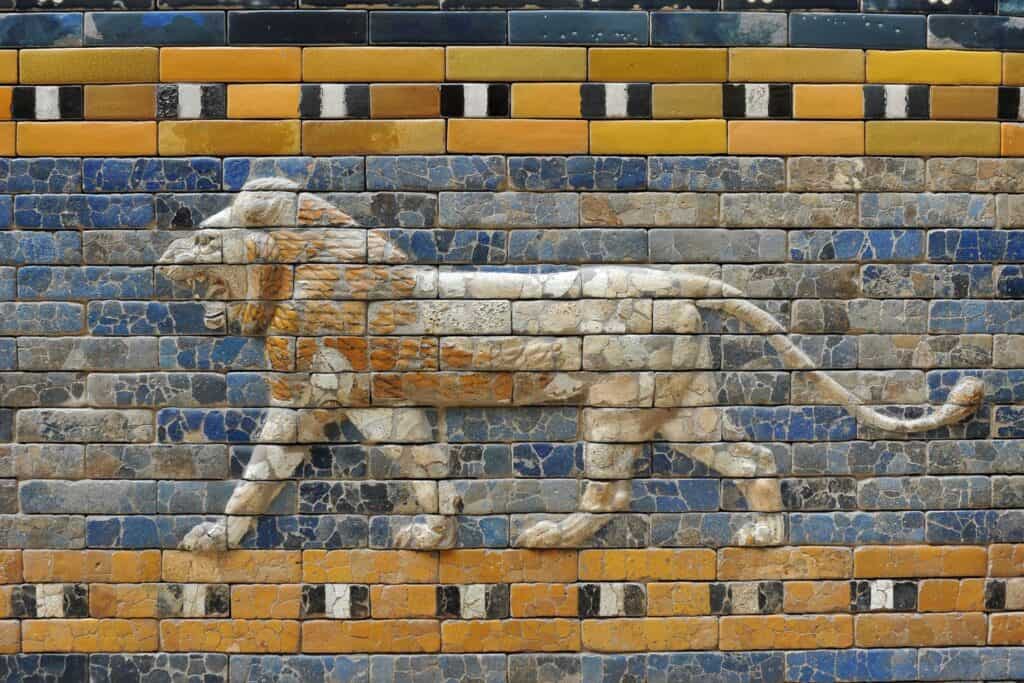
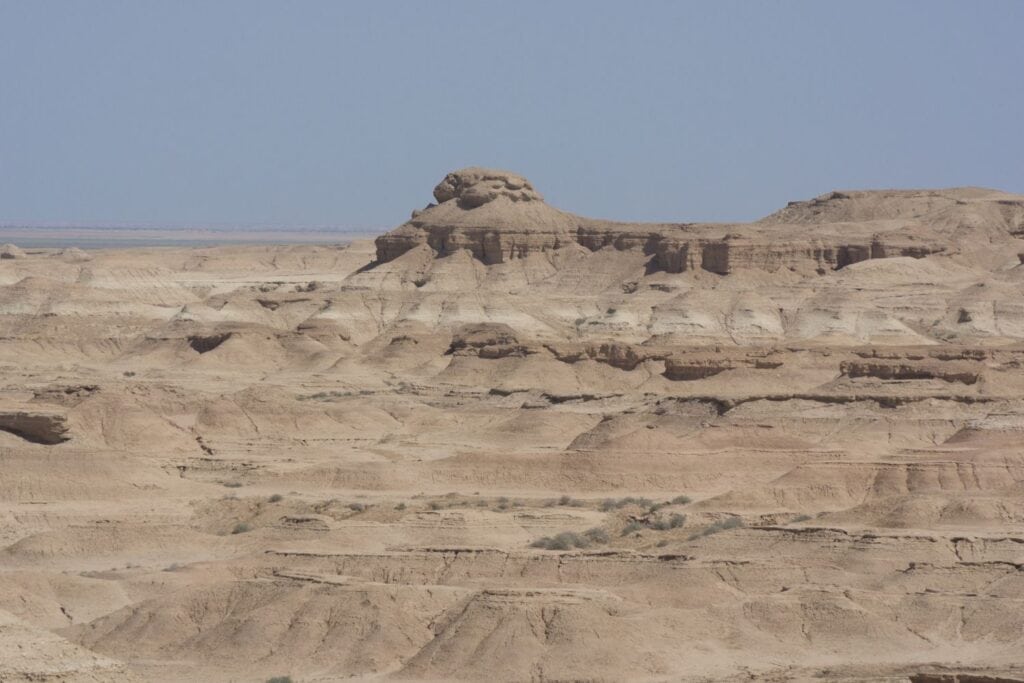
Historical Attractions
- Karbala Museum: Located near the Imam Hussein and Imam Abbas shrines, this museum houses a range of artifacts and documents related to the Battle of Karbala and the broader history of the region. It provides visitors with a deeper understanding of the historical events that shaped the city.
- The Battle of Karbala Historical Site: This site is dedicated to the events of the Battle of Karbala in 680 AD, where Imam Hussein and his companions were martyred. It offers historical insights and is a place of reflection for many visitors.
Religious and Cultural Sites
- Imam Hussein Shrine: The shrine of Imam Hussein, the grandson of Prophet Muhammad, is a major religious site for Shia Muslims. It is known for its intricate architecture, beautiful mosaics, and the large gatherings of pilgrims who come to pay their respects.
- Imam Abbas Shrine: Located close to the Imam Hussein Shrine, this shrine is dedicated to Imam Abbas, the half-brother of Imam Hussein. It is a significant pilgrimage site and features impressive architectural elements and vibrant tile work.
- Al-Askari Mosque: Although less prominent than the two main shrines, this mosque is an important religious site in Karbala and is associated with the spiritual life of the city.
- Karbala Cultural Center: This center promotes the cultural heritage of Karbala through various exhibitions and events. It focuses on traditional arts, crafts, and literature, showcasing the rich cultural tapestry of the region.
Archaeological Sites
- Babylonian Ruins: Located near Karbala, the ruins of ancient Babylon offer a glimpse into the city’s pre-Islamic past. These ruins include remnants of the ancient city’s walls, temples, and other structures that highlight its historical significance.
- Uruk Archaeological Site: Though a bit farther from Karbala, the site of Uruk, one of the world’s earliest cities, provides significant archaeological insights into ancient Mesopotamian civilization and is worth a visit for history enthusiasts.
Natural and Scenic Attractions
- The Euphrates River: Flowing near Karbala, the Euphrates River offers scenic views and a chance to experience the natural beauty of the region. It is an important geographical feature that has historically supported the area’s agriculture and settlement.
- Karbala’s Green Spaces: The city has several parks and green areas where visitors can enjoy a relaxing stroll and appreciate the local flora. These areas provide a contrast to the urban environment and offer a peaceful respite.
- Desert Landscapes: The surrounding desert landscape offers opportunities for scenic drives and exploration. The vast, open spaces provide a dramatic backdrop to the historical and cultural sites of Karbala.
These attractions collectively highlight Karbala’s rich historical, religious, and cultural significance, making it a compelling destination for visitors interested in exploring the diverse aspects of this historic city.
Travel Tips for Karbala
Cultural Sensitivity
- Dress Modestly: Dress conservatively, especially when visiting religious sites. Women should wear a headscarf, and both men and women should cover their arms and legs. Avoid wearing shorts, sleeveless tops, or revealing clothing.
- Respect Religious Practices: Be mindful of local customs and religious practices. During religious observances, such as Ashura or Arbaeen, be aware of the heightened significance and respect the solemnity of these events.
- Photography Etiquette: Always seek permission before taking photographs, especially in sacred or private areas. Some sites and individuals may prefer not to be photographed.
- Behavior in Religious Sites: Maintain a respectful demeanor while visiting religious sites. Speak softly, avoid loud conversations, and follow any specific guidelines provided by site authorities.
- Greetings and Social Interaction: Use appropriate greetings. A handshake is common, but be mindful of local customs; for example, some people may not shake hands with the opposite sex. When addressing someone, use polite titles and expressions.
Health Precautions
Vaccinations:
Ensure you are up-to-date on essential vaccinations for Iraq. These may include:
- Hepatitis A and B: Recommended for travelers.
- Typhoid: Advisable, especially if you will be staying in less developed areas.
- Tetanus: Ensure your tetanus vaccination is current.
- Rabies: Consider if you will be in contact with animals or in rural areas.
Health and Hygiene:
- Water and Food Safety: Drink bottled or purified water and avoid raw or undercooked foods. Be cautious about eating street food.
- Personal Hygiene: Carry hand sanitizer and practice good hygiene to prevent illnesses.
Medical Facilities: Familiarize yourself with the location of reputable medical facilities in Karbala. Ensure you have adequate travel insurance that covers health issues abroad.
Travel Insurance: Obtain comprehensive travel insurance that includes coverage for health emergencies, as well as trip cancellations or interruptions.
Communication
Language: Arabic is the primary language spoken in Karbala. While many people in tourist areas may understand basic English, learning a few essential Arabic phrases or using a translation app can enhance communication.
Mobile Connectivity: Ensure your mobile phone is equipped with an international roaming plan or purchase a local SIM card upon arrival. This will help you stay connected and access maps and communication apps.
Emergency Contacts:
- Local Emergency Numbers: Have local emergency contact numbers handy, such as for police, medical services, and your hotel.
- Embassy Contact: Keep contact information for your country’s embassy or consulate in Iraq in case you need assistance.
Communication Tools: Utilize apps like Google Translate for real-time translations and navigation. Having these tools can help bridge any language gaps you may encounter.
By considering these tips, you can navigate cultural norms respectfully, stay healthy, and communicate effectively during your visit to Karbala.
Conclusion
Karbala is a city rich in spiritual and historical significance. Key attractions include the revered Imam Hussein Shrine and Imam Abbas Shrine, central to its religious heritage. The Karbala Museum and Battle of Karbala Historical Site offer insights into its historical context. Nearby, the Babylonian Ruins highlight ancient history, while the Euphrates River and local parks add scenic charm. Karbala provides a unique blend of spirituality, history, and natural beauty, making it a compelling destination for visitors.
Karbala is a city that captivates visitors with its profound spiritual significance, rich history, and vibrant culture. Whether you’re a pilgrim seeking spiritual enrichment or a traveler exploring Iraq’s cultural heritage, Karbala has something to offer. Plan your visit with Aknaf Al Sawary and uncover the timeless treasures and hidden gems of this remarkable city.
Embark on an unforgettable journey through Karbala, and experience the blend of ancient traditions and modern developments that make this city truly unique. Discover the heart of central Iraq with Aknaf Al Sawary – your trusted travel partner.
